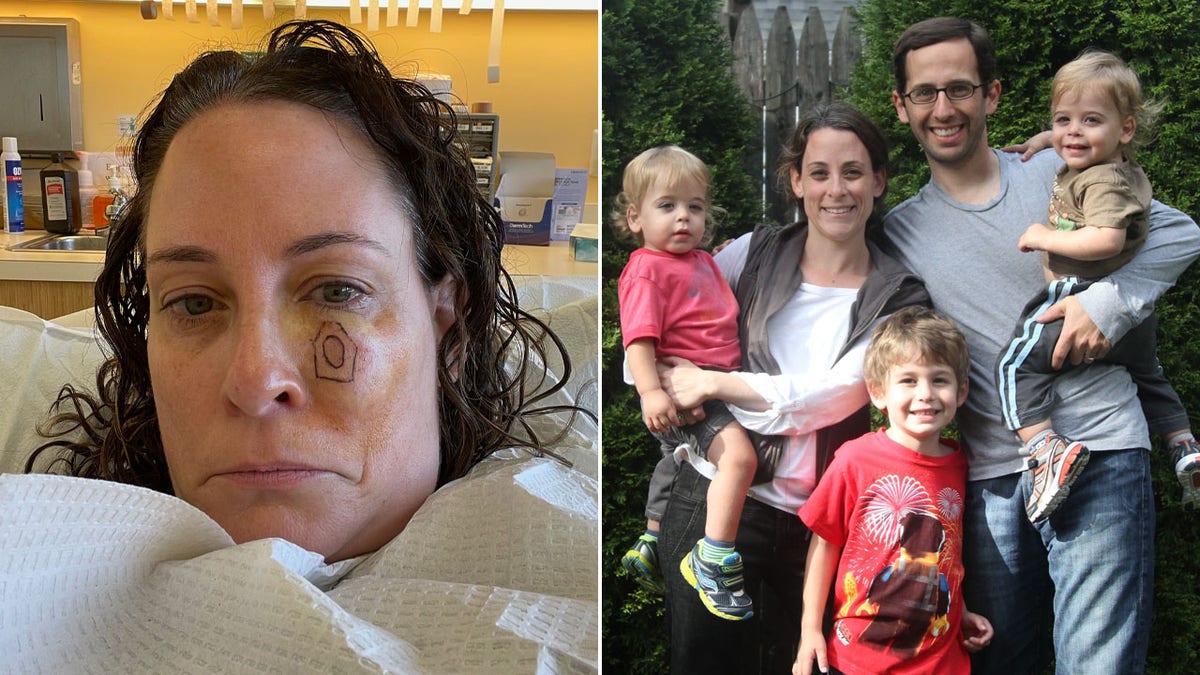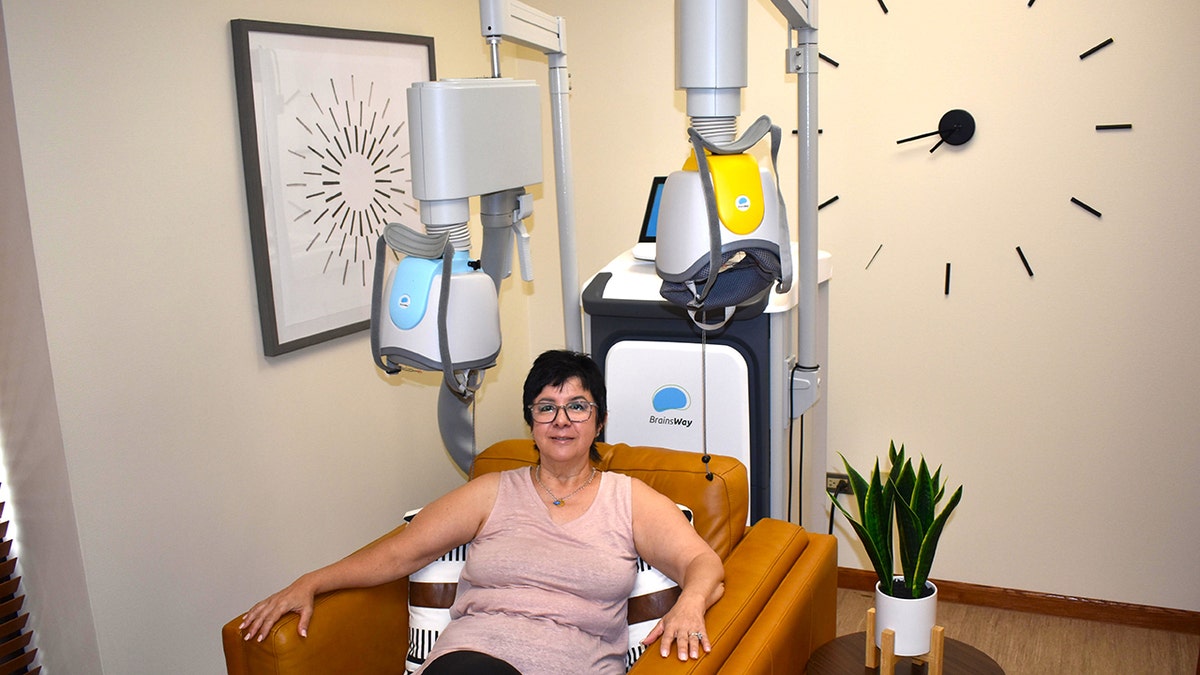Health
“After 15 Years of Severe GI Issues, I Found The Sneaky Culprit — Now I Feel Better Than Ever!”

Doctors have long understood that sucrose intolerance, also known as Congenital Sucrase-Isomaltase Deficiency (CSID), is a genetic condition in which afflicted individuals have extreme GI-discomfort whenever they eat foods with sucrose in them (like candies, fruits, many processed foods and even some veggies). The conventional thinking was that sucrose intolerance was diagnosed in infancy and that was that.
More recently, however, it’s become clear that there are genetic variants that cause a less severe form of the condition that are impacting more people than doctors had imagined. “Recent studies have suggested that up to 35% of patients diagnosed with irritable bowel syndrome — particularly the diarrhea-predominant type — may actually have these variants,” says John Damianos, MD, an internal medicine physician with a focus on gastroenterology at Connecticut’s Yale New Haven Hospital. This means many more people suffering extreme GI discomfort (stomach cramps, bloating, gas, and diarrhea) in silence without understanding the true nature of their problem.
Case in point: For more than a decade, Lisamarie Monaco, 50, suffered from bloating, pain, constipation and diarrhea. After being diagnosed with irritable bowel syndrome (IBS), she changed her diet and tried various medications. But to Lisamarie’s despair, her GI symptoms became even worse. Then a few years ago, a new doctor made a surprising discovery: Lisamarie didn’t have IBS after all, she has sucrose intolerance.
Here, Lisamarie shares her healing journey, and Dr. Damianos gives a fuller picture of why sucrose intolerance is on the rise and an at-home test you can take to see if your situation warrants a trip to the doctor.
How GI upset took over Lisamarie’s life
“Another day of racing to the bathroom,” Lisamarie Monaco sighed in frustration as she battled yet another bout of uncontrollable diarrhea. Beginning in 2002, chronic digestive issues often left Lisamarie unable to leave her house — or her bathroom.
What had begun as abdominal discomfort and bloating had progressed, often leaving her doubled-over in pain, disrupting nearly every part of her life. Lisamarie assumed her symptoms were caused by irritable bowel syndrome, or IBS, which her doctor agreed was likely the cause and diagnosed her with the digestive syndrome that typically causes bloating, pain, constipation and/or diarrhea.
However, despite making numerous dietary changes and taking over-the-counter medicines, Lisamarie’s symptoms never improved — in fact, things only got worse.
As Lisamarie bounced from specialist to specialist to try to determine a course of treatment, she was unable to find one that eased her symptoms, which grew so severe that she had to leave her job of 18 years and she lost over 40 pounds.
Lisamarie’s health had deteriorated so much that an acquaintance thought Lisamarie was terminally ill. “This has to be more than IBS,” Lisamarie told herself. “And I am going to find out what it is!”
The real cause of Lisamarie’s stomach woes
Finally, after 15 years of suffering, Lisamarie found a doctor who was willing to take his time to get to the bottom of her symptoms.
One of the tests the doctor performed was a hydrogen breath test — a simple and noninvasive way to diagnose common gastrointestinal conditions through an evaluation of the gas you exhale. It’s main purpose was to determine Lisamarie’s levels of the sugar compound, sucrose. Commonly known as table sugar, granulated sugar or just plain “sugar,” sucrose is a disaccharide made of equal parts glucose and fructose.
To her surprise, that test led to a surprising new diagnosis: Lisamarie had sucrose intolerance. “I have what?” she asked, in shock.
What is sucrose intolerance?
Lisamarie’s doctor explained that a sucrose intolerance develops when there is a lack of the enzyme sucrase-isomaltase, which breaks down the link between the glucose and fructose molecules (that make up sucrose) so they are absorbed into the small intestine.
Without that enzyme, sucrose is not absorbed in the small intestine and moves on to the colon, where it causes cramping, bloating, gas and diarrhea.
Lisamarie’s doctor further explained that sucrose intolerance, which often gets worse as our digestion slows down with age, is more common than typically diagnosed, since the symptoms are difficult to distinguish from irritable bowel syndrome.
The drug-free way to heal sucrose intolerance
Thrilled to finally have an answer, Lisamarie asked what she could do to address her symptoms and finally get back to living a normal life. Her doctor explained that the key to eliminating symptoms of sucrose intolerance was to cut out or considerably reduce consuming foods with added sugar, or those naturally high in sucrose like bananas, apples and raisins.
Lisamarie also needed to avoiding any artificial sweeteners with sucralose — marketed as Splenda in the United States — the artificial form of sucrose. (Click through to see if putting sucralose sweetener in your coffee could be the cause of all your gut issues)
Although these steps aren’t easy for many people to do, Lisamarie was desperate for relief from her severe GI symptoms.
Feeling encouraged, Lisamarie began by eliminating soda and other sneaky sugary drinks (like juice), reading labels on foods to ensure they contained very little sugar and increasing the amount of whole grains and fiber to help aid the process of sugar absorption in her body.
Then, she started eating low-sucrose food options like avocados twice a week and adding blueberries into probiotic-rich Greek yogurt to help maintain a healthy gut. She also made sure to stay hydrated by drinking a lot of water throughout the day.
(Click through to find out how this sucrose substitute dials doswn blood sugar to make weight loss effortless + low-sugar dessert recipes)
Eliminating sucrose worked for Lisamarie
After just a few days, Lisamarie started feeling less discomfort and wasn’t bloated. And in just a few weeks, her symptoms were completely gone.
“I was able to clean out my medicine cabinet — for good!” smiles Lisamarie, 50, who today sticks to a low-sugar diet and remains symptom-free. “I’m thrilled to have my life back!”
How SIBO can morph into sucrose intolerance
Any gastrointestinal disorder that causes inflammation in the small intestine (like Crohn’s Disease or Celiac Disease or Small Intestinal Bacterial Overgrowth, also known as SIBO — take this quiz to find out if you have SIBO) can trigger sucrose intolerance, explains Dr. Damianos. The reason? “The sucrase-isomatase enzyme is found on the ends of cells in the small intestine.” He explains. “Any inflammation can cause a sloughing-off of this enzyme, preventing sugars from being digested.”
Complicating matters, sucrose intolerance is frequently misdiagnosed because its symptoms (bloating, abdominal pain, flatulence and diarrhea) are non-specific. “Similar symptoms are seen in an enormous number of other gastro-intestinal disorders.”
Which is why Dr. Damianos recommends the 4-4-4 test for anyone who suspects they could be intolerant to sucrose. “While the test is sensitive, it’s not specific, so a positive test doesn’t necessarily mean a person has sucrose intolerance.” A positive 4-4-4 test will prompt your doctor to order other tests to confirm the diagnosis.
To take the 4-4-4 test for sucrose intolerance, follow these steps:
- Stir 4 Tbs. of sugar into 4 oz. of water.
- Drink the mix on an empty stomach.
- Monitor yourself for 4 hours. If you experience bloat, loose stools or abdominal discomfort, further testing by your doctor will be needed to confirm a sucrose intolerance.
Note: Dr. Damianos stresses that this test is not appropriate for babies, young children or people with diabetes.
More gut-healthy stories from Woman’s World…
Is Bad Bacteria Building in Your Gut? Why It Causes Bloat and Brain Fog, and How To Fix It
What Does Your Gut Do and How Does It Work? This 16-Point ‘Gut Guide’ Has the Answer
Read other real women’s journey to healing…
“Listening to Music in This Healing Frequency Cured My Insomnia and Brain Fog”
“This Home Remedy Cured My Overactive Bladder — And Gave Me My Life Back!”
“Two Simple Chair Yoga Moves Saved Me From Chronic Pain and Constant Falls!”
This content is not a substitute for professional medical advice or diagnosis. Always consult your physician before pursuing any treatment plan.
A version of this article originally appeared in our print magazine, Woman’s World.

Health
7 important health stories you might have missed this week: Catch up here

Every day of the week, Fox News Digital publishes a range of health pieces to keep you up-to-date on the most important wellness news.
We cover cutting-edge medical research, breakthrough medications, mental health challenges, personal medical dramas and more.
In case you missed them, here are a few of our biggest health stories from this week.
CLICK HERE TO SIGN UP FOR OUR HEALTH NEWSLETTER
You can see a full list of recent health pieces at http://www.foxnews/health.
1. Hunger could be tied to sleep, expert says
If you’re feeling hungrier than usual lately, your sleep routine could be the culprit. A nutritional biologist offers tips for regulating sleep and curbing unhealthy cravings. Click here to get the story.
The food you eat can determine the quality of your sleep, according to experts. Here are the latest findings. (iStock)
2. Health agencies issue bird flu update: ‘Alert, not alarmed’
The CDC and WebMD teamed up this week to deliver an hour-long update on Thursday about the current bird flu outbreak. Fox News Digital breaks down the most important points. Click here to get the story.

Experts assured the public that drinking pasteurized milk remains safe. (iStock)
3. Melanoma patients share their stories
For Skin Cancer Awareness Month, two melanoma patients are speaking up about their symptoms, treatment and prevention tips to help others avoid the potentially deadly disease. Click here to get the story.

Abby Weiner, pictured at left and at right with her husband and sons, was diagnosed with melanoma in Oct. 2023. (Abby Weiner)
4. Report reveals staggering discrepancy in health care costs
Patients with private health insurance could be charged up to 300% more than those with Medicare, a new report reveals. Doctors explain the reasons for the sticker shock. Click here to get the story.

The new report published the names and pricing models of more than 4,000 U.S. hospitals. (iStock)
5. Pastor shares important message about depression
A Dallas pastor who fought his own depression battle shares how he overcame the disease – and why it’s so important for those in church leadership to seek help when they need it. Click here to get the story.

Mark Dance, pictured with his wife, Janet Dance, said he suffered through a three-year period of depression while serving as a pastor. (Dr. Mark Dance)
6. Nurse’s depression is cured through breakthrough tech
A Chicago nurse struggled with COVID-19-related PTSD and depression for years until electrical brain tapping therapy finally gave her a new lease on life. Click here to get the story.

“Had I not had this treatment today, I don’t know where I’d be,” the patient told Fox News Digital. (Melanie Eilers)
7. Young vaper shares warning after nearly dying
A 22-year-old man in Nebraska required a double lung transplant due to vaping. Jackson Allard shares his story as a cautionary tale. “I had a 1% chance to live,” he said. Click here to get the story.

This week’s health stories have included a pastor’s depression journey, the sleep-hunger connection, health care cost discrepancies, bird flu updates and more. (Mark Dance, iStock)
For more Health articles, visit www.foxnews.com/health.
Health
Introducing Our Product Reviews Team, and How We Review | Woman's World

Sign Up
Create a free account to access exclusive content, play games, solve puzzles, test your pop-culture knowledge and receive special offers.
Already have an account? Login
Forgot your password?
Get back to the Sign In
Use left and right arrow keys to navigate between menu items.
Use escape to exit the menu.
Health
What You Should Know About the Military Diet: Experts Weigh In | Woman's World

Sign Up
Create a free account to access exclusive content, play games, solve puzzles, test your pop-culture knowledge and receive special offers.
Already have an account? Login
Forgot your password?
Get back to the Sign In
Use left and right arrow keys to navigate between menu items.
Use escape to exit the menu.
-

 World1 week ago
World1 week agoIndia Lok Sabha election 2024 Phase 4: Who votes and what’s at stake?
-

 News1 week ago
News1 week agoSkeletal remains found almost 40 years ago identified as woman who disappeared in 1968
-

 Politics1 week ago
Politics1 week agoUS Border Patrol agents come under fire in 'use of force' while working southern border
-

 Politics1 week ago
Politics1 week agoTales from the trail: The blue states Trump eyes to turn red in November
-

 World1 week ago
World1 week agoBorrell: Spain, Ireland and others could recognise Palestine on 21 May
-

 World1 week ago
World1 week agoCatalans vote in crucial regional election for the separatist movement
-

 World1 week ago
World1 week agoEurope matters to consumers, and so does your vote
-

 Politics1 week ago
Politics1 week agoNorth Dakota gov, former presidential candidate Doug Burgum front and center at Trump New Jersey rally






/cdn.vox-cdn.com/uploads/chorus_asset/file/24748328/236706_Mac_Pro_AKrales_0094.jpg)









